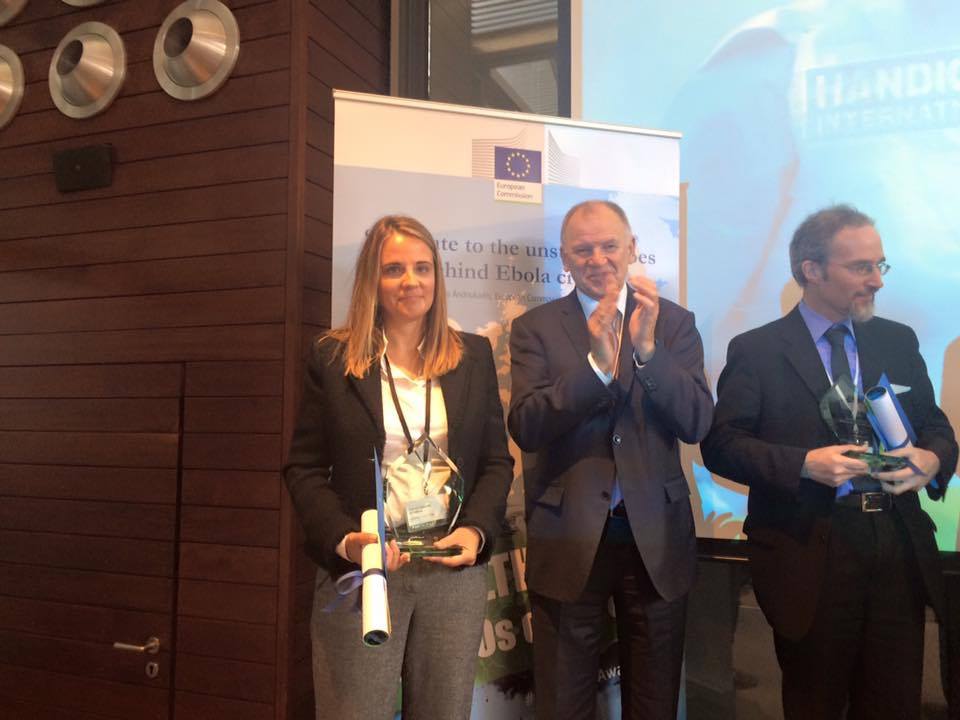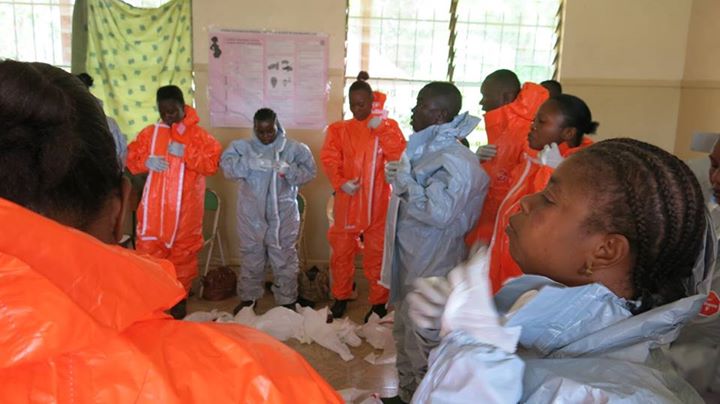Spanish Red Cross received EU Health Award
The European Commission's new EU Health Award for Non-Governmental Organisations (NGOs) recognises and rewards achievements and outstanding work in the area of health.

The 2015 EU Health Award focused on acknowledging the tireless work of certain NGOs during the Ebola outbreak, highlighting the notable difference they made in the fight against the deadly virus. Three NGOs were recognised for their significant contributions to fighting Ebola in West Africa and promoting higher levels of public health in Europe.
On Monday, the Spanish Red Cross was awarded, together with The Alliance for International Medical Action and Concern Worldwide, and received the third prize for its "West Africa Ebola outbreak relief operation”.
Spanish Red Cross’ work to fight Ebola
The Spanish Red Cross carried out a large variety of activities to address several aspects of the disease; from direct response to support Ebola patients in the affected countries, to promoting public health and awareness in the EU, and monitoring the health of incoming migrants.
The Spanish Red Cross followed the standard recommended public health interventions for stopping the Ebola outbreak (WHO standards), characterised by the Red Cross Red Crescent Movement as the 'five pillars of intervention':
• Safe and Dignified Burials
• Community Engagement and Social Mobilisation
• Contact Tracing and Surveillance
• Psychosocial Support
• Case Management

As part of the wider Red Cross Red Crescent response, the Spanish Red Cross contributed to the safe and dignified burial of 30,000 Ebola victims; reached 6,400,000 people through educational materials and health promotion activities; provided 323,000 people with psychosocial support; and admitted 1,300 patients into specialised healthcare facilities.
The Spanish Red Cross supported the construction and management of two Ebola treatment centres (ETC) with up to 60 beds each. Forty two international Spanish Red Cross delegates collaborated in launching and commissioning the centres, providing expertise in health care and medical assistance, water and sanitation, and infection prevention and control. Training courses were organised for all the staff deployed in the area, enabling them to acquire the knowledge and skills necessary to perform the demanding work of the ETCs, in accordance with necessary safety requirements.
Based on the experience gained in the field, the Spanish Red Cross produced an ECTs "construction guide”, to facilitate decision-making and planning for future interventions. They also recruited and trained 200 local staff and contributed to social mobilisation activities to increase the understanding and awareness in local communities of Ebola prevention and control measures, with a special emphasis on encouraging attitude and behavioural change.
In order to capitalise on their experience working in the ETCs, in collaboration with the International Federation of Red Cross and Red Crescent Societies (IFRC), the Spanish Red Cross organised pre-deployment training courses for international staff being deployed to Ebola affected environments. The training equipped delegates with knowledge of the disease and transmission routes, as well as providing technical skills to adopt safe behaviour and work efficiently in well-designed ETCs.
This training protocol became a point of reference both in the EU and globally. So far, more than 15 training sessions have been facilitated with over 200 participants from different organisations, including Action Against Hunger, the Assessment Capacities Project, the American Red Cross, the Australian Red Cross, the British Red Cross, the Canadian Red Cross, Concern, Juan Ciudad, Medicins du Monde, Medair, the Norwegian Red Cross and Save the Children.
Finally, the Spanish Red Cross developed an online training platform on Ebola, which is available in different languages for the different components of the Red Cross Red Crescent Movement.
Life Beyond Ebola
For the past 18 months, the people of West Africa have been battling the deadly Ebola outbreak. While cases have remained in the single digits for several months, the need to continue to supporting the three main affected countries (Guinea, Liberia and Sierra Leone) in their recovery remains immense. Health care systems were decimated, the infrastructure is extremely weak, people lost their livelihoods, and stigma continues to haunt those affected, as well as responders.
Visit the Life Beyond Ebola micro-site to learn more about how life is continuing beyond Ebola and the daily needs and experiences of the people of West Africa.
For media inquiries, please contact Eva Oyón on: eva.oyon@redcross.eu or +32 2 235 09 22

